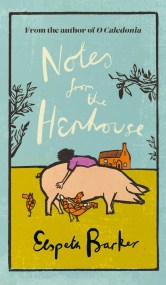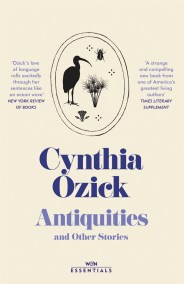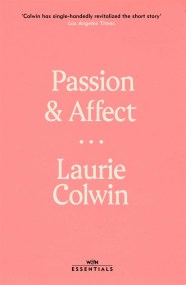‘I once decided to become friends with someone on the sole basis that she named O Caledonia as her favourite book’ Maggie O’Farrell
‘A sparky, funny work of genius and one of the best least-known novels of the 20th Century’ Ali Smith
‘Funny, surprising, exquisitely written and brilliant on the smelly, absurd, harsh business of growing up. The Brontë sisters and Poe via Dodie Smith and Edward Gorey’ David Nicholls
‘An absolute sumptuous treat of a book’ Elizabeth Macneal
‘A wonderful oddity – brief, vivid, eccentric, written with ferocious zest and black humour’ Penelope Lively
‘The words sing in their sentences’ The Times
‘The reader feels unalloyed joy on every page’ Independent
Vera was painting the pony’s hooves gold in the dining room; Janet said this was bad for him; poison would seep into his bloodstream.
At the bottom of a great stone staircase, dressed in her mother’s black lace evening dress, twisted in murderous death, lies Janet. So end the sixteen years of Janet’s short life.
A life spent in a draughty Scottish castle, where roses will not grow, and a jackdaw decides to live in the doll’s house.
A life peopled by prettier, smoother-haired siblings, a Nanny with a face like the North Sea and the peculiar, whisky-swigging Cousin Lila.
A life where Janet is perpetually misunderstood – and must turn from people, to animals, to books, to her own wild and wonderful imagination.
WITH AN INTRODUCTION BY MAGGIE O’FARRELL
‘A sparky, funny work of genius and one of the best least-known novels of the 20th Century’ Ali Smith
‘Funny, surprising, exquisitely written and brilliant on the smelly, absurd, harsh business of growing up. The Brontë sisters and Poe via Dodie Smith and Edward Gorey’ David Nicholls
‘An absolute sumptuous treat of a book’ Elizabeth Macneal
‘A wonderful oddity – brief, vivid, eccentric, written with ferocious zest and black humour’ Penelope Lively
‘The words sing in their sentences’ The Times
‘The reader feels unalloyed joy on every page’ Independent
Vera was painting the pony’s hooves gold in the dining room; Janet said this was bad for him; poison would seep into his bloodstream.
At the bottom of a great stone staircase, dressed in her mother’s black lace evening dress, twisted in murderous death, lies Janet. So end the sixteen years of Janet’s short life.
A life spent in a draughty Scottish castle, where roses will not grow, and a jackdaw decides to live in the doll’s house.
A life peopled by prettier, smoother-haired siblings, a Nanny with a face like the North Sea and the peculiar, whisky-swigging Cousin Lila.
A life where Janet is perpetually misunderstood – and must turn from people, to animals, to books, to her own wild and wonderful imagination.
WITH AN INTRODUCTION BY MAGGIE O’FARRELL
Newsletter Signup
By clicking ‘Sign Up,’ I acknowledge that I have read and agree to Hachette Book Group’s Privacy Policy and Terms of Use
Reviews
A sparky, funny work of genius about class, romanticism, social tradition and literary tradition, and one of the best least-known novels of the 20th century
O Caledonia is a Gothic coming-of-age story, the Brontes and Poe via Dodie Smith and Edward Gorey. Funny, surprising, exquisitely written -and brilliant on the smelly, absurd, harsh business of growing-up.
This is an extraordinary novel: original, beautiful yet tough (Barker loves jaggy, spiky words such as "monkey puzzle", "azaleas", "horizon", anything with a "z" in it), with a sympathetic outsider of a heroine whose tragic fate is depicted on the very first page, puncturing any kind of narrative tension but capturing our attention nevertheless. Few see colour in a grey Scottish day the way Barker does, when a dying winter sun "sheds an unearthly glory; shafting drifts of crimson, green and blue, alive with whirling atoms of dust ..." And yet this darkly magical tale has been forgotten, displaced in the pantheon of great Scottish writing by other, supposedly tougher, work... Barker's love of the classics, her focus on mothers and daughters, and her remarkable evocation of landscape, should mark her out as one of Scotland's principal writers, but fashion and the politics of literary movements have skimmed over her.
Elspeth Barker's is a wholly original literary voice. O CALEDONIA, first published 20 years ago, reads as freshly now as then. Steeped in classical allusions, rich in Scottish - and natural - history, fantastical in its highly wrought characters, this coming-of-age-novella is as passionately intense as it is wittily acerbic... Propelled by the sheer force of words, the horrors and humours plunge on, observed by an eye both youthful and perspicacious... The reader feels unalloyed joy, and occasional winces, on every page
An absolute sumptuous treat of a book
A surreal, hilarious and dark story of a troubled adolescence deep in the wilds of Scotland
O Caledonia is an absolute freak show of brilliance; dark and hilarious and dreadful in the best way imaginable. I wish I'd written it.





































